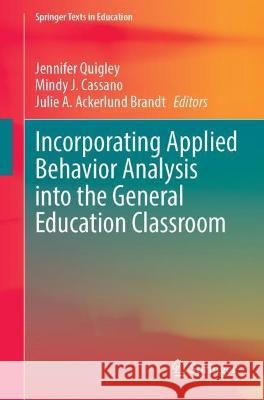Incorporating Applied Behavior Analysis into the General Education Classroom » książka
topmenu
Incorporating Applied Behavior Analysis into the General Education Classroom
ISBN-13: 9783031358241 / Angielski / Miękka / 2023
This user-friendly textbook addresses the relevance of Applied Behavior Analysis (ABA) within the general education setting. Oftentimes, ABA is thought of as only applicable to those with autism spectrum disorder and other developmental disorders. In contrast, the application of ABA principles is appropriate for any socially significant problem, such as those that arise daily in the general education setting. This book will help educators, through individual and group interventions, decrease maladaptive behavior in their classrooms and to increase the focus on the curriculum.
This book not only summarizes the basics of ABA technologies and methodologies but provides readers with:
• Materials tailored to be used with any student by general education practitioners, teachers, and clinicians
• Specific examples to ease the application of these technologies and curriculums
• Templates to be individualized to each reader’s needs
• A focus on the functionality and applicability of these programs
Written in layman’s terms and broken down into categories of basic concepts and school-wide implementation, general educators will not only learn about ABA applications in education but will have clear examples of how to bridge the gap between understanding and application.











